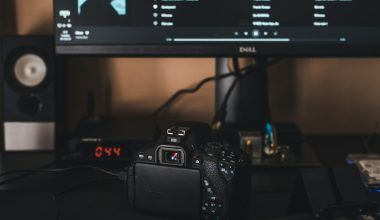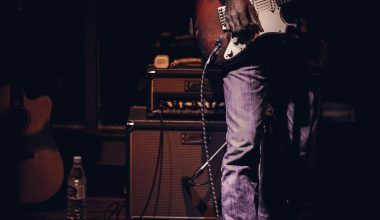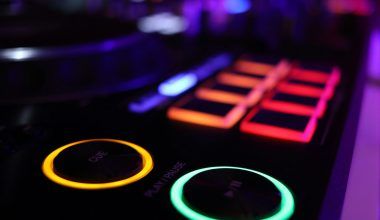The Magic Behind Music and Visuals
When you think about your favorite song, what comes to mind? Maybe it’s the lyrics, the beat, or even the music video that made you feel something special. That’s where the videographer enters the scene. In the world of music, a videographer doesn’t just hold a camera—they create a visual experience that amplifies the emotions in the song.
From concert recordings to music videos and behind-the-scenes content, videographers work tirelessly to capture moments that stick with you. They know how to tell a story that resonates with viewers. If you’ve ever watched a music video that gave you chills, chances are, a skilled videographer was behind it.
Why Visuals Matter in Music
Music is an auditory experience, but adding visuals takes it to a whole new level. Imagine a song about heartbreak. Hearing the lyrics can move you, but seeing a beautifully shot music video can make you feel as though you’re living the story.
A videographer bridges the gap between sound and sight. They don’t just shoot footage; they create an atmosphere. Whether it’s through moody lighting, dramatic angles, or well-timed cuts, they know how to bring the artist’s vision to life. This is why videographers are so valuable in the music industry—they help musicians connect with their audience on a deeper level.
The Role of a Videographer in Music
Videographers wear many hats when working with musicians. They could be capturing live performances, directing a music video, or even filming casual behind-the-scenes clips. Each of these roles requires creativity, technical skills, and the ability to collaborate.
For example, when shooting a live concert, a videographer needs to capture the energy of the crowd and the artist’s charisma. This involves using multiple cameras, quick thinking, and expert editing to piece it all together later. On the other hand, shooting a music video often means working closely with the artist to storyboard, plan shots, and ensure the final product aligns with the song’s message.
How Videographers Create Emotion
One of the most impressive things a videographer can do is evoke emotion. They don’t just film what’s happening—they guide the viewer’s feelings through their work.
For instance, a videographer might use slow-motion shots to emphasize a song’s melancholy tone or vibrant, fast-paced cuts to match an upbeat track. The colors, camera angles, and even the way scenes transition all play a role in making the audience feel something.
The Collaboration Between Videographers and Musicians
A successful music project always involves teamwork. The videographer and musician work hand-in-hand to create something memorable. Musicians bring their songs to the table, while videographers bring their expertise in visual storytelling. Together, they brainstorm ideas, scout locations, and decide on themes.
This collaboration often sparks creativity on both sides. A musician might come up with a unique idea for a scene, while the videographer suggests a specific technique to enhance it. The result? A music video or performance that captures the essence of the song.
Tools of the Trade
Behind every stunning music video or concert film is a set of tools that make it possible. Videographers rely on high-quality cameras, lenses, lighting equipment, and editing software to bring their vision to life.
For example, drones have become increasingly popular in music videos for capturing breathtaking aerial shots. Gimbals help stabilize the camera, ensuring smooth footage even during fast-paced movements. Editing software like Adobe Premiere Pro or Final Cut Pro allows videographers to add effects, adjust colors, and sync the video perfectly with the music.
Trends in Music Videography
The music industry is always evolving, and so is videography. Lately, we’ve seen a surge in minimalist music videos that rely on raw emotion and simplicity. On the other hand, some artists prefer elaborate productions with CGI and intricate sets.
Social media has also changed the game. Short-form videos on platforms like TikTok and Instagram Reels are now a big part of music promotion. Videographers need to adapt their skills to create content that grabs attention in just a few seconds.
Behind the Scenes: A Day in the Life of a Music Videographer
Being a videographer in the music industry isn’t always glamorous, but it’s incredibly rewarding. A typical day might start with a pre-shoot meeting to go over plans with the artist. Then it’s off to the location, where they set up equipment and test angles.
During the shoot, a videographer needs to think on their feet. Lighting changes, unexpected challenges arise, and they need to adapt quickly. After the shoot, the real magic happens—editing. This is where everything comes together to create a seamless, emotional visual story.
The Future of Videography in Music
As technology advances, the possibilities for videographers in the music world are endless. Virtual reality (VR) and augmented reality (AR) are opening up new ways to experience music. Imagine putting on a VR headset and feeling like you’re front row at a concert or even inside a music video.
The rise of artificial intelligence (AI) is also shaping how videos are created. AI can assist with editing, generate unique visual effects, and even help with pre-production tasks like location scouting.
Why Every Musician Needs a Videographer
In today’s digital age, having strong visuals is essential for any musician. A good videographer can help an artist stand out in a crowded industry. Whether it’s through cinematic music videos or eye-catching social media clips, the right visuals can make all the difference.
Becoming a Music Videographer
If you’ve ever dreamed of working as a videographer in the music industry, now is a great time to start. The first step is to learn the basics of videography, including camera operation, lighting, and editing. From there, practice as much as possible.
Networking is also key. Reach out to local musicians and offer to shoot their performances or create a low-budget music video. As you gain experience, build a portfolio to showcase your work. Over time, you’ll develop your own style and establish yourself as a go-to videographer for musicians.
Final Thoughts
A videographer’s role in the music industry goes beyond holding a camera. They are storytellers, artists, and collaborators who bring music to life through visuals. If you’re a musician, working with a talented videographer could be the key to taking your career to the next level.
Likewise, if you’re a videographer, the music world offers endless opportunities to flex your creative muscles and make a lasting impact. Together, musicians and videographers can create something truly unforgettable—stories that people will watch, hear, and feel for years to come.
For further reading, explore these related articles:
- How to Check Streams on Spotify: A Super Easy Guide for Artists
- What is Spotify Background Video and How Can It Help You as an Artist?
For additional resources on music marketing and distribution, visit DMT Records Pvt. Ltd..






